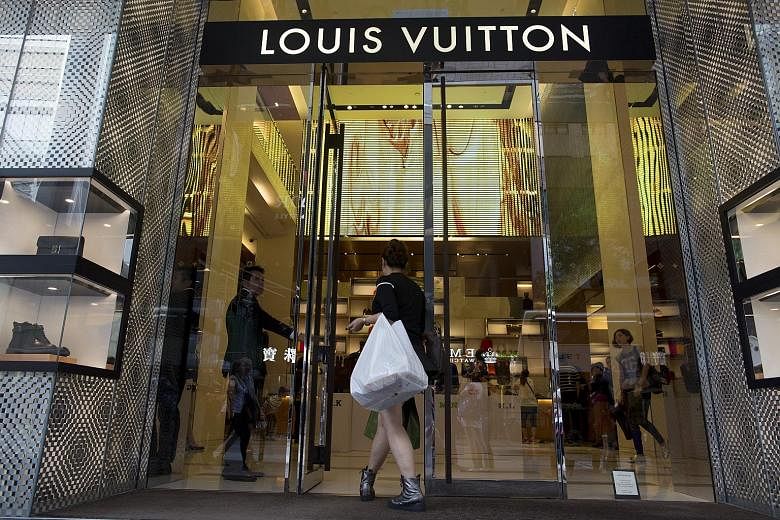As department stores and publishers join the ranks of those offering luxury goods online, they are running into a new breed of competitor: makers of the designer clothing, handbags and accessories they sell.
The shift is making the Internet look more like the real world. Department stores, after all, compete with shops owned by the likes of Gucci and Fendi and have seen their share of luxury sales erode in recent years as brands opened outlets in places from Beijing to Bogota.
The same dynamic is starting to play out online. LVMH and German fashion label Hugo Boss are shifting more resources to e-commerce as growth in China slows. That is setting makers of luxury goods on a collision course with Web distributors and could result in more deals such as Yoox's merger with Net-a-Porter. The new company starts trading on Monday.
It is shaping up to be an "online luxury turf war", said Mr John Guy, an analyst at MainFirst. "The level of competition is increasing."
In the past year, a half-dozen or so companies have raised funds or reorganised to sell luxury goods online. Galeries Lafayette, the French department-store chain, plans to double profit by 2020 by becoming an "omnichannel" retailer. Conde Nast, the publisher of Vogue magazine, is rebooting fashion-review website Style.com to sell luxury products.
The online push has already spurred consolidation. Departmentstore chain Neiman Marcus Group last year bought fashion retailer Mytheresa.com. Yoox's union with Net-a-Porter will create the world's largest luxury Web retailer. More deals will likely follow because distributors need scale to survive, said Mr Luca Solca, an analyst at Exane BNP Paribas.
They are all seeking to capture more Web sales of luxury goods, which brokerage Sanford C. Bernstein & Co predicts will grow at more than twice the pace of the overall luxury market to €27 billion (S$43 billion) through 2019.
Until recently, luxury companies like Giorgio Armani and Valentino tended to outsource e-commerce because of the cost and complexity of selling online. Burberry Group bucked the trend, keeping its online operations in-house. E-commerce accounts for about 10 per cent of the company's retail sales.
Now LVMH and Hugo Boss are going it alone online as well. Last month, LVMH chairman Bernard Arnault hired a senior executive from Apple to spearhead his company's digital push and, earlier this year, acquired a minority stake in Lyst, an aggregator of luxury e-commerce sites. Hugo Boss, meanwhile, is investing in technology to let clients order online and pick up their suits, ties and shoes from its outlets.
"The industry is finally moving from dipping its toes in online to jumping into the pool," said Bernstein analyst Mario Ortelli.
While Mr Ortelli estimates that as much as 9 per cent of luxury sales will take place online by the end of the decade, almost double last year's share, the Internet is not just a battleground for revenue. As more shoppers turn to mobile devices to browse and buy, the Web is key for capturing customer data.
That helps explain why Fendi, one of LVMH's 15 fashion and leather goods brands, built its own e-commerce site this year. To give customers the flexibility to order how and where they want, "there was only one answer, which was doing it alone", said Fendi chief executive officer Pietro Beccari.
Luxury brands will likely continue to sell via third-party websites, just as they work with department stores because they help reach customers who would not necessarily come to their outlets. Some will still rely on outsiders to manage their Web business.
As the battle lines get drawn between suppliers and distributors, a far bigger combatant lurks in the background - Amazon.com, which has bulked up its fashion offerings as it seeks more affluent customers.
"The big gorillas are entering into our space," Mr Johann Rupert, chairman of Compagnie Financiere Richemont, which will own 50 percent of Yoox Net-a-Porter, said last month. "If you want to play in that field, you have to have size."
BLOOMBERG

